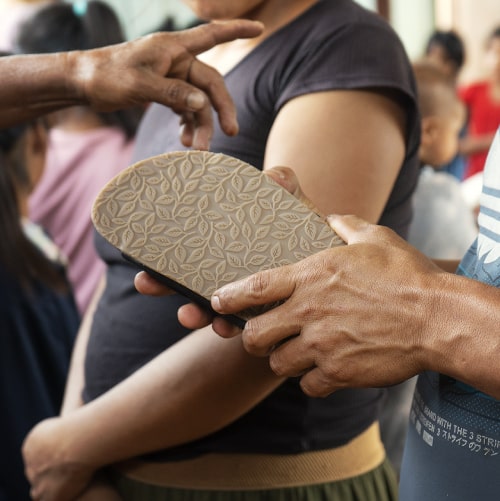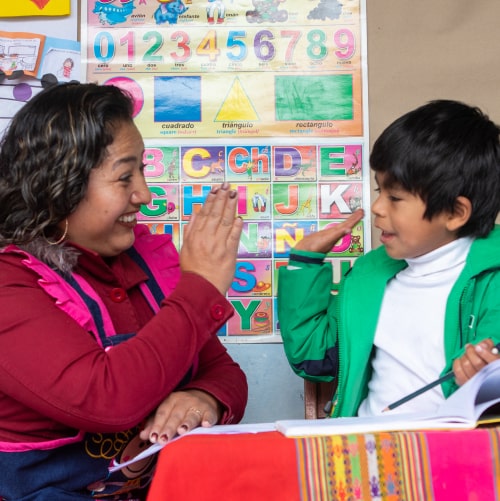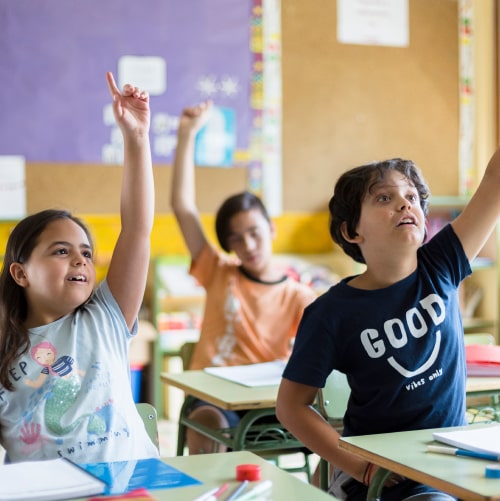Through Chicken What and The National, the Civitano group maintains a powerful alliance with one of the ventures of the Wiese Foundation’s Entrepreneurship Fund.
For a start-up such as Empanacombi, the quarantine brought on by the COVID-19 pandemic was one of the most difficult battles to face. With businesses closing all around, restrictions on buying and selling products, and a general immobilization, growing a social business whose objective goes beyond just selling food was dauntingly difficult. Despite this, they used all their weapons to carry on, to this day. One of those aces up the sleeve was belonging to the Entrepreneurship Fund of the Wiese Foundation.
Empanacombi is a company in the gastronomic sector that stands out for its hiring of young staff with different disabilities, adapting the conditions of its kitchens to accommodate them; in fact, these have been designed to enhance the performance of their workers.
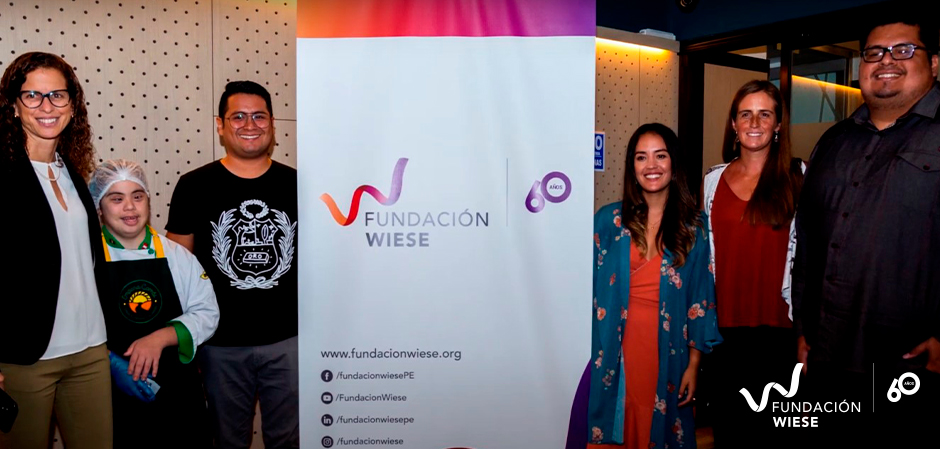
Empanacombi is one of the four ventures that are a part of the cohort of the Entrepreneurship Fund of the Wiese Foundation, and thanks to this, they have received specialized guidance and tailored financing, backed by their formal commitments to commercial scalability, self-sustainability, and social impact, which has meant a great advantage before, and even during, the pandemic.
As part of this support, Empanacombi, which already had a strategic alliance with Repsol, extended its relationships to different allies. One of these powerful connections was established with Civitano, the gastronomic holding of the Wiese Foundation, which is currently a proprietor of important restaurant chains in Peru and Chile.
“They told me about Empanacombi and how they work with a social focus. I believe that today many people have a good product, they bring in foreign concepts and are very creative, but in reality, people want to go a little farther, and that is supporting a social cause. That is why this venture is special”, states Renato Peralta – chef, baker, and gastronomic director of Civitano – about the alliance with Empanacombi.
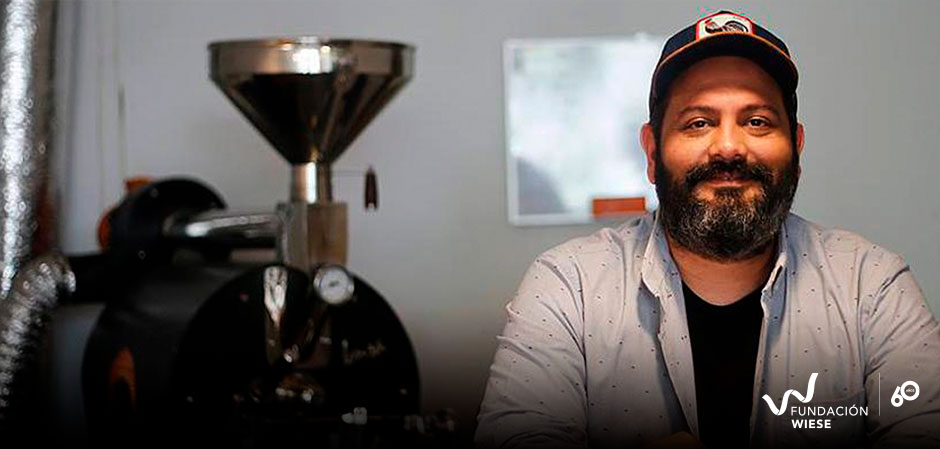
“Our objective is to expand the support that we have been giving to Empanacombi, distributing its empanadas to other stores that we manage. Because its product is very good”, he adds, and confesses that in addition to the social value of this venture, the attitude and predisposition of its principal figures, Carlos Sánchez and Cynthia Rodríguez, was fundamental when they met.
“Carlos and Cinthia are very hard-working and grateful. They are involved in the day-to-day activities and always like to learn and receive feedback. They sent me a panetón during the holidays and have been asking
for my feedback, and that’s nice and is well received, their interest and heart is apparent in all of their products”, declares Renato.
The relationship between Civitano and Empanacombi is not limited to the sale of some of the products of the social start-up. The bond that unites them goes beyond that… In his role as mentor from the Entrepreneurship Fund, Renato Peralta has given technical and strategic assistance to Empanacombi and has carefully guided the steps of this venture, including its food. The support is related to mentorship through the whole chain of production and not only the gastronomic aspect, with the objective of achieving the desired commercial expansion.
“This alliance is important because it fundamentally increases sales and, on the other hand, serves to convince other companies of Civitano’s level to join in using providers with a social impact”, confesses Carlos Sánchez, CEO of Empanacombi.
“Alliances are fundamental. This is something that we have been doing, it is even a very valuable channel for sales for us. Without a doubt, our contact with Civitano was because of the Wiese Foundation. Furthermore, many of the initiatives of the Entrepreneurship Fund, such as the training sessions, and more, are important”, adds Carlos about this cooperation.
“In Chicken What, we are offering the Apple Pie, which is our version of a sweet apple empanada, and at the location at the Jorge Chávez International Airport, we sell empanadas of lomo al jugo and three-cheese empanadas; at this location we are selling more, we receive more frequent orders”, says the CEO of Empanacombi about the products offered by his venture in the chains of restaurants of Civitano.
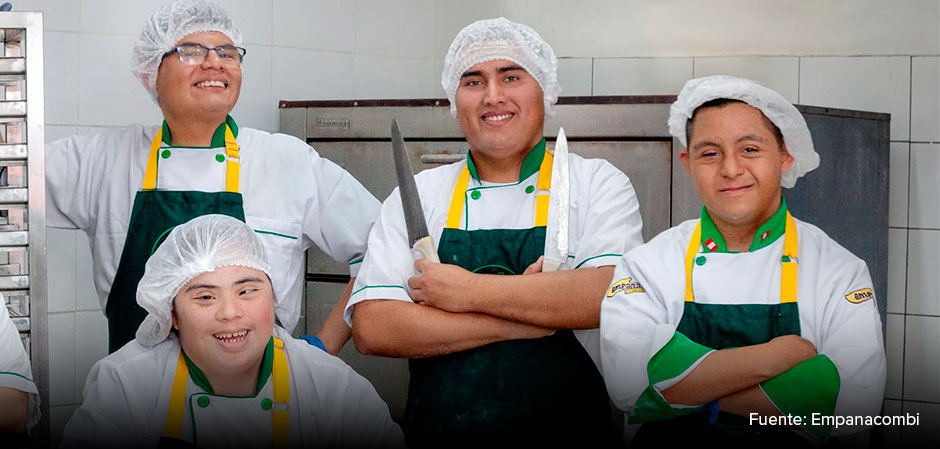
In this way, Empanacombi and Civitano are united in a project that involves not only well-made, quality dishes, but also with the clear purpose of improving the lives of dozens of people with disabilities, allowing them to feel that their products have value in society and that, through them, they can be seen in a positive light.
About Empanacombi
Empanacombi is a social culinary business that promotes inclusive work for chefs with disabilities.
Their delicious empanadas and other artisan products are made in the first inclusive kitchen in the country for people with disabilities. It is a space adapted to enhance the performance of young people with diverse diagnoses (hearing disabilities, learning disabilities, Down syndrome, and autism), which incorporates reasonable adjustments thought of through principles of inclusive design. Precisely in order to scale this design, Empanacombi applied to and won the Grand Prize of the Kunan Challenge 2021.
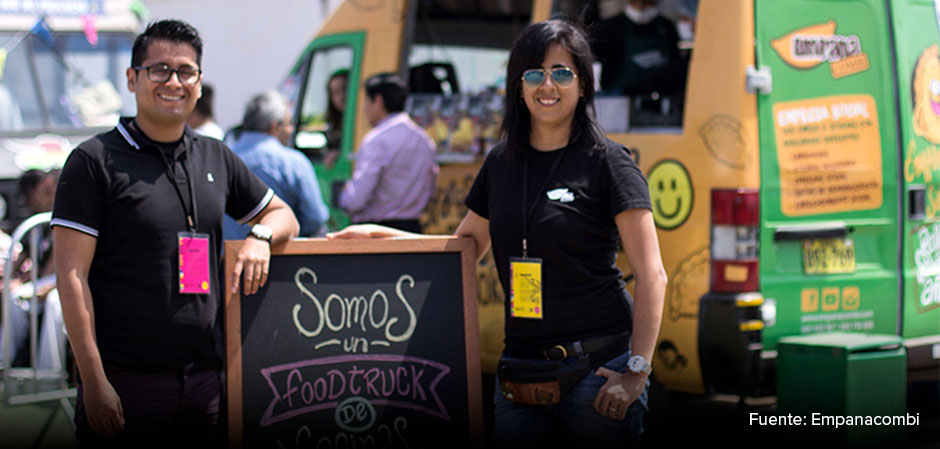
About Civitano
The Civitano group is a multi-brand, multinational gastronomic operator. Currently, it has four brands, with 18 locations, in Peru: Capital Fish, The National, Juicy Lucy, and Chicken What; and since 2018, it has four brands, with 22 locations, in Chile: Santa Brasa, El Gaucho, Don Bife, and Burger Trunk.
Each one of the restaurants of the Civitano group is a reference for its category, for both the quality of its food and for its excellent service.
About the Entrepreneurship Fund
The Entrepreneurship Fund is a platform for impactful investment that seeks to identify and boost formal businesses in Peru that have been created with the mission of addressing a relevant social problem for the most vulnerable communities, through their commercial operations.




